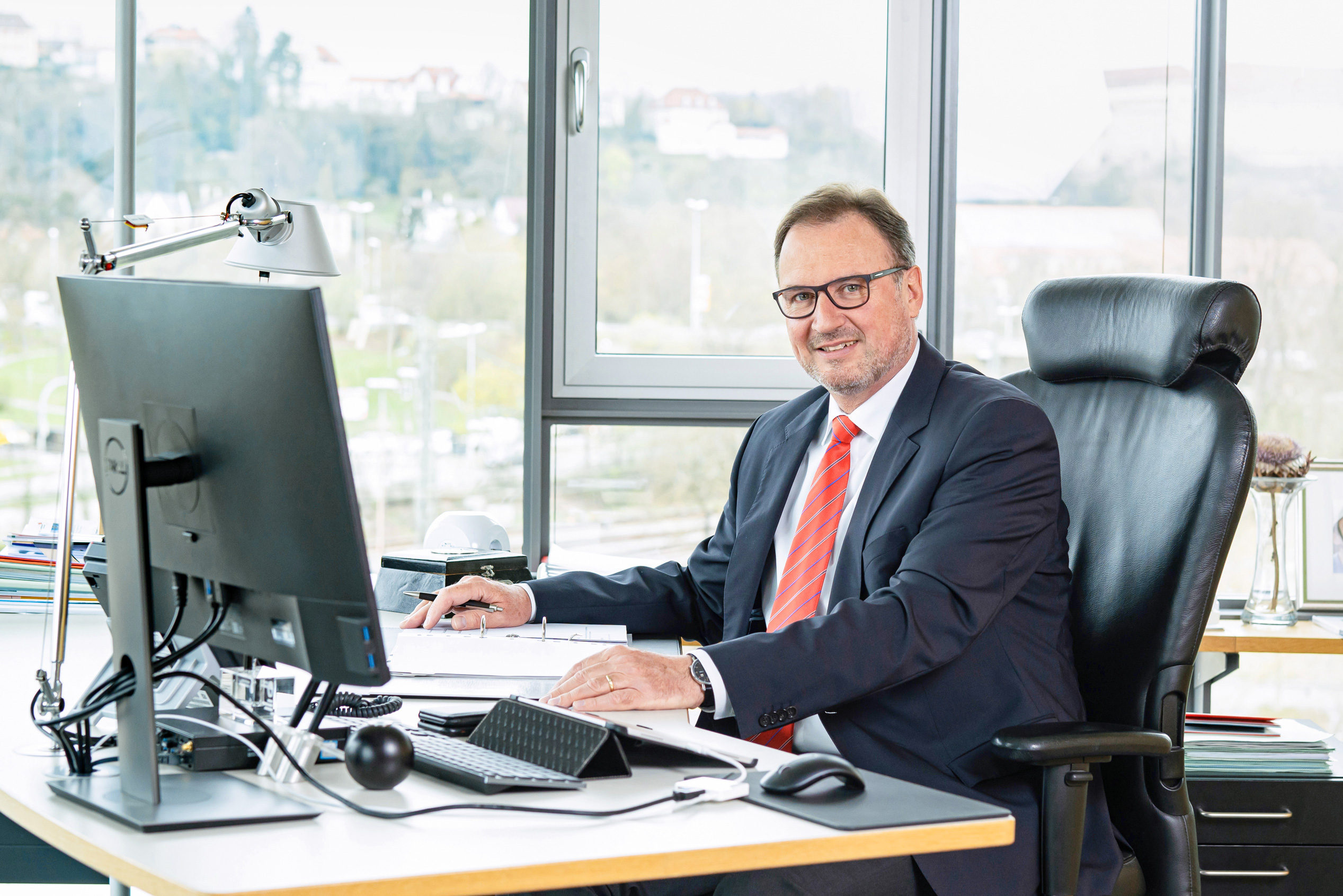Lawyer Joachim Walter is not only a long-standing County Administrator of the Tübingen district and Vice President of the Association of German Counties, but also a member of the DSGV Board of Directors. As a local politician, he is directly involved in the various transformation processes. He is therefore in a good position to comment on the socio-ecological transformation required locally and the role of the Savings Banks.
Mr Walter, what are the current challenges for your county and for districts in Germany in general?
The counties have not been able to get out of crisis mode for years now. This began in 2015 with the refugees, who not only had to be accommodated by the local authorities, but also ultimately integrated. It continued with the coronavirus pandemic, the consequences of which are still very much present in the healthcare system and in the area of youth welfare in particular. This was followed by Russia’s war of aggression against Ukraine – accompanied by an energy crisis, inflation and an economic downturn. Finally, there was the war in the Gaza Strip triggered by the Hamas attack, the long-distance effects of which are also challenging our local society. At the same time, the counties are in the midst of several transformation processes, often described as the three big Ds: digitalisation, decarbonisation and demographic change which are placing massive demands on them. This combination of multiple simultaneous crises and a packed future agenda is leading to a plethora of tasks on the part of the counties that are almost impossible to manage – especially in times of scarce financial and, above all, human resources. The federal and state governments must therefore carry out a critical review to reduce the density and depth of tasks at local authority level as far as possible.
For a sustainable future, we need a socio-ecological transformation in society. How are the counties already contributing to social participation and an environment worth living in at regional and municipal level?
The counties are undoubtedly key players when it comes to mastering the social and ecological challenges of the coming decades. As a local welfare provider, they are committed to achieving a good balance between personal responsibility and solidarity for social participation. The counties also see themselves as future-makers in ecological terms. In the state sector, as local pollution control authorities, they drive forward the expansion of wind power plants and, as local nature conservation authorities, take care of the preservation of biodiversity. At municipal level, they ensure a sustainable circular economy and a functioning public transport system, to name just a few examples. Socio-ecological transformation is not an abstract political message in the counties, but a lived practice.
What support should ideally come from the state or even the federal government?
I think we have to be honest. At the moment, we not only lack the financial resources, but above all the skilled labour and manpower to actually successfully drive forward the overdue transformations under the current conditions. We are simply too cumbersome, too over-regulated and not focused enough. Politicians at federal and state level must therefore do one thing above all: by systematically deferring tasks that may be useful but are not absolutely necessary and consistently reducing unnecessary standards, local authorities must be given back the room for manoeuvre they need to make real progress on the issues of the future.
What role can Savings Banks play in implementing the socio-ecological transformation as part of their public mandate?
Savings Banks are an important driver of transformation in local authorities. Their business model from the region for the region is an anchor of stability. Donations, foundations and sponsoring by the Savings Banks are enormously important for work in culture, the arts, social affairs and associations. In addition, Savings Banks and their association partners are the most important financial partners in the transformation of SMEs and private households. And local authorities also need a partner like this at their side, who can provide funding over and above municipal loans.
Is there already cooperation between the district administration and Savings Banks in your district in this context and how does it work? Can you give examples of projects?
Yes, definitely, in very different areas and projects. Both of our institutions have a mission to be there for the people in the county. We are very grateful for the good and trusting cooperation with our Kreissparkasse Tübingen, for example, in supporting volunteer structures or providing for the refugees the district is responsible for taking in. Unlike many other banks, the Kreissparkasse allows us to set up accounts, which means significantly less administrative work.

»There is no doubt that the counties are key players when it comes to mastering the social and ecological challenges of the coming decades.«
Member of the DSGV Executive Board
